On the morning of November 28, the National Assembly discussed in the hall the draft revised Law on Property Auction. One of the contents that many delegates were interested in was how to prevent the situation of abandoned auction deposits.
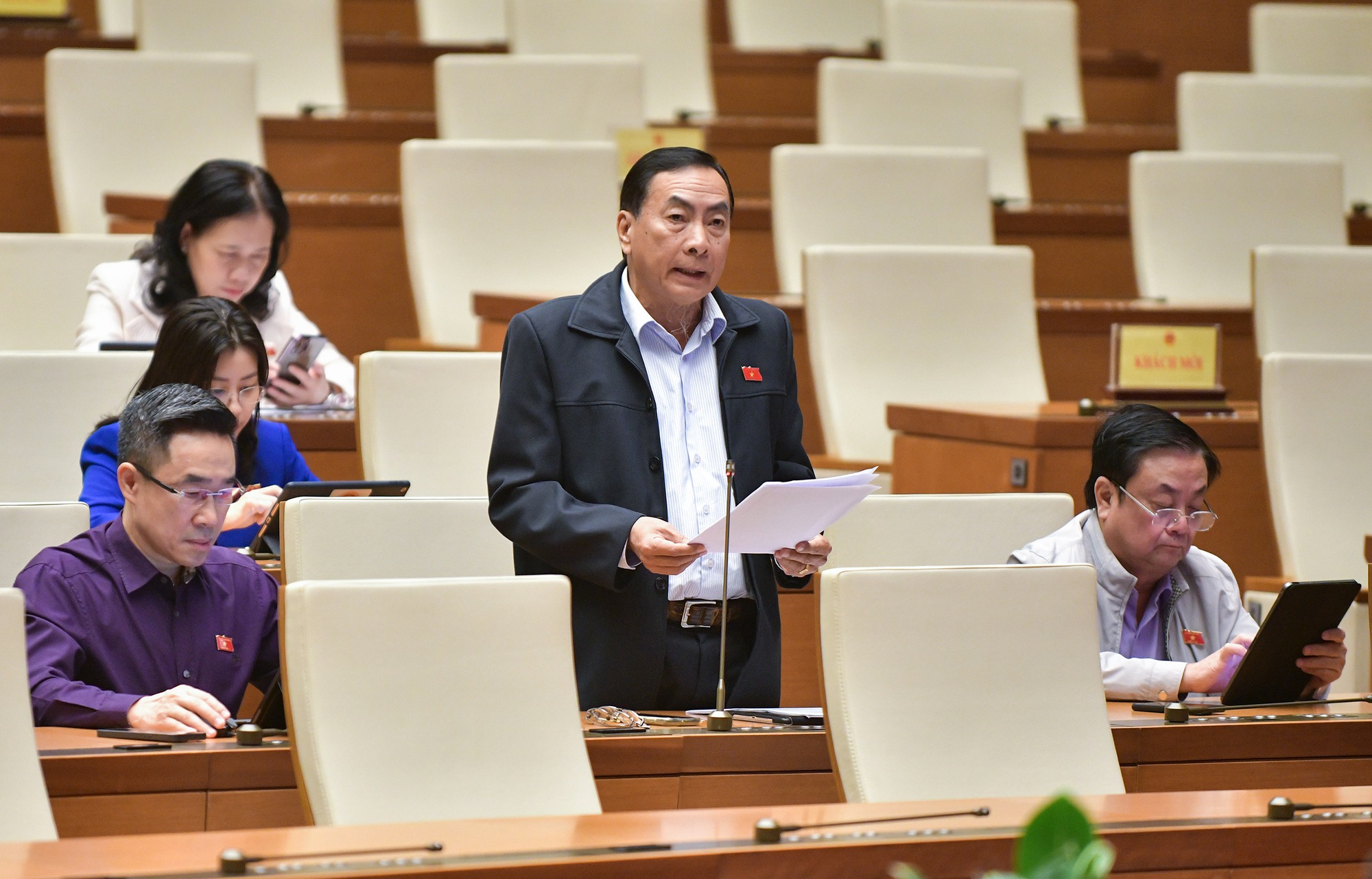
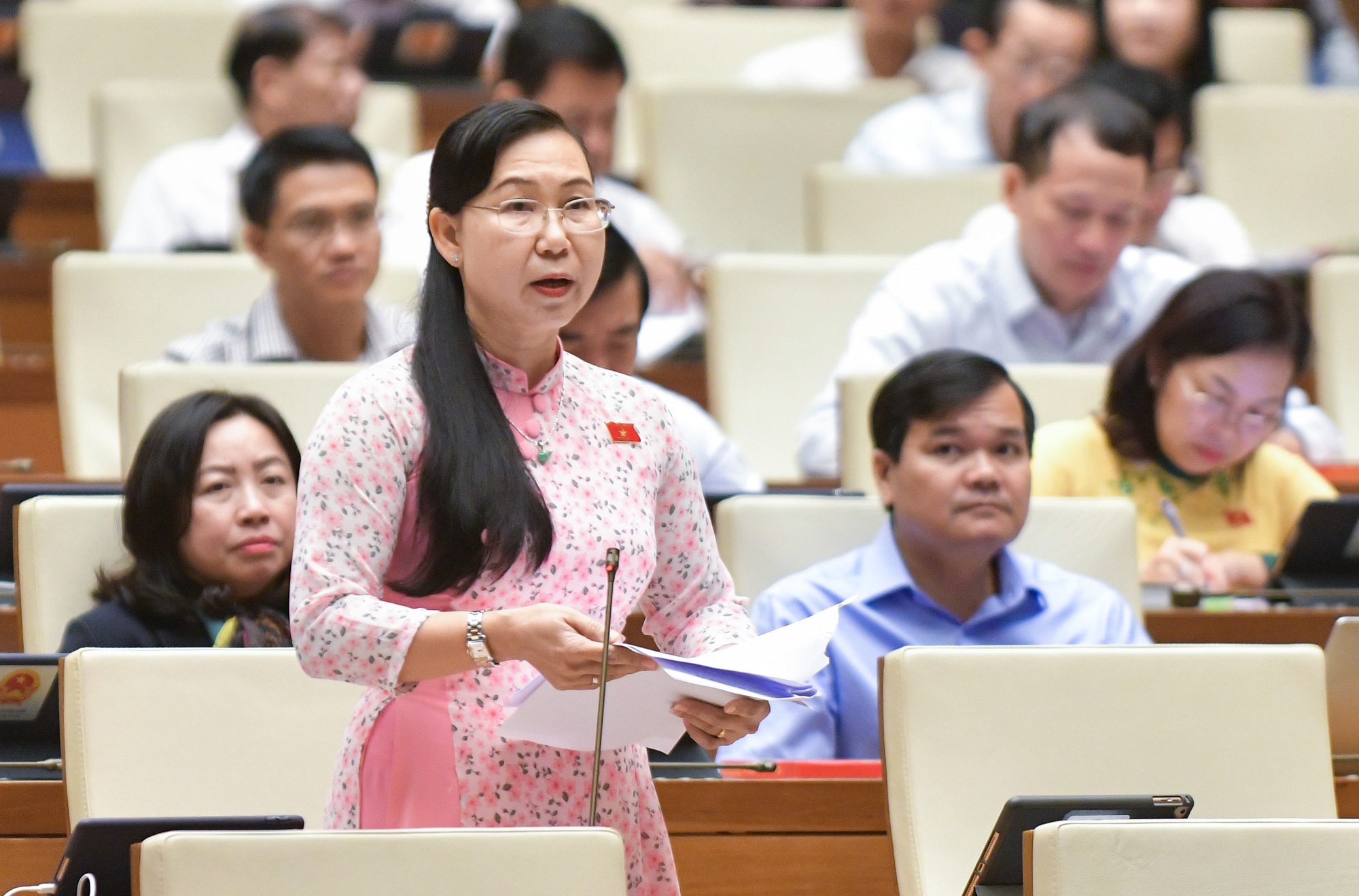
Delegates Pham Van Hoa (left) and Phan Thi My Dung speak at the discussion on the issue of abandoning auction deposits.
"Starting price 24 billion, auction up to 1,684 billion is unusual"
Delegate Pham Van Hoa (Dong Thap delegation) stated that amending the regulations on deposits and handling deposits in property auctions is very necessary to avoid taking advantage of participating in auctions not for the purpose of auctioning, but instead colluding and agreeing with each other to pay low prices, causing losses to the state budget, leading to negativity.
Mr. Hoa cited a number of cases of abandoning auction deposits, disrupting the market, "tarnishing the image of the auction", and causing negative public opinion recently. Typical examples include Tan Hoang Minh abandoning the deposit for land auctions in the new urban area of Thu Thiem, car license plate auctions, or 3 sand mines in Hanoi.
To stop the situation of auction winners abandoning their deposits, Mr. Hoa said that measures should be taken such as raising the deposit level higher than current regulations, applying administrative sanctions, and not allowing them to participate in the next auction...
"Only then can we maintain discipline in asset auction activities, not allowing anyone with money to do whatever they want," Mr. Hoa said, at the same time suggesting that the results of the second highest bidder be recognized, without having to re-organize the auction to avoid costs.
Also participating in the discussion, delegate Phan Thi My Dung (Long An delegation) said that the current regulation of deposit level from 5 - 20% is appropriate. If it is raised too high, it will affect the freedom of transaction, reduce competition, and fewer people will participate in property auctions.
The female delegate mentioned some organizations and individuals participating in auctions with bad intentions, such as showing off their prestige or manipulating the market to form a new price level. She proposed that after a certain period of time, if the auction winner fails to fulfill his financial obligations and cannot prove the reason for force majeure, in addition to losing the deposit, he will also be fined an additional amount. Of course, this fine must be based on the addition of relevant regulations and sanctions.
In particular, according to Ms. Dung, in recent times, many auctions have shown signs of abnormality, with prices being paid too high compared to the general level, especially for public assets (land use rights, mining rights), with prices paid up to 204 times higher than the starting price. "From a starting price of 24 billion VND, the winning bid price was up to 1,684 billion VND," the female delegate cited, and said that the law has not yet stipulated that the auctioneer or the person with the auctioned asset has the right to stop or request to stop the auction to handle similar cases.
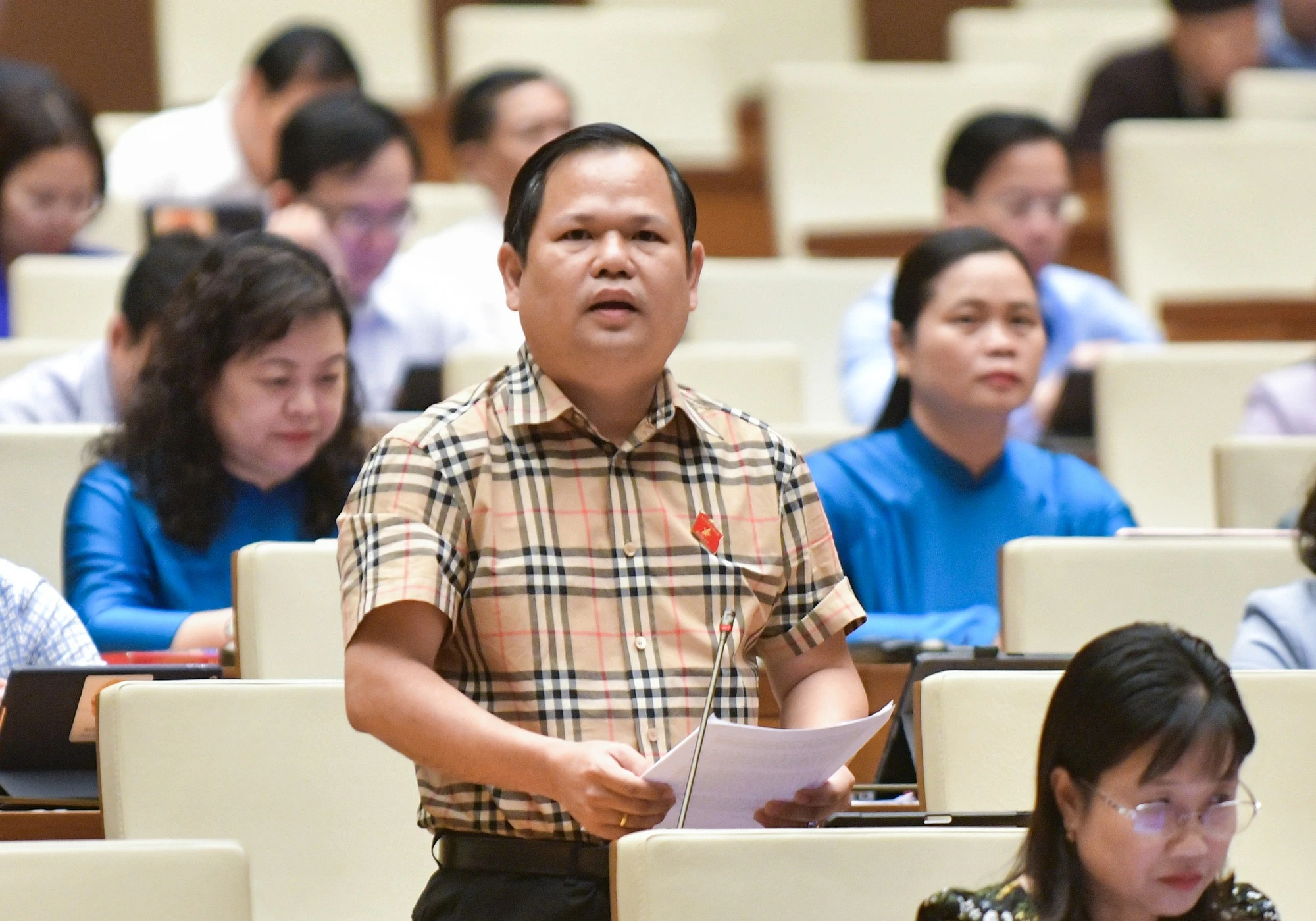
Delegate Nguyen Duy Thanh (Ca Mau delegation) suggested referring to international experience, possibly criminally handling the act of abandoning auction deposits.
Criminal prosecution if manipulation affects economic security
Sharing the same view, delegate Nguyen Duy Thanh (Ca Mau delegation) affirmed that there should be regulations to limit the situation of abandoned auction deposits.
According to Mr. Thanh, the current law stipulates a deposit of 5 - 20% of the starting price (after winning the auction, it will be converted into a deposit), while in many cases the starting price is low so the auction winner does not have to consider too much when making a deposit.
To limit the story of auction winners abandoning their deposits, especially the factor of group interests and auction manipulation, the delegate of Ca Mau province said that it is necessary to separate the deposit and the deposit.
The deposit can be 20 - 30% of the winning bid price, and must be paid immediately after the auction result is announced. If the winning bidder does not pay, the result will be canceled and the auction will continue.
"Assuming the deposit that must be paid immediately is up to hundreds or thousands of billions of dong instead of just a few hundred million or a few billion dong, the auction winner will certainly be very cautious when bidding," Mr. Thanh stated his opinion.
Notably, the delegate also suggested that international experience could be consulted and specific regulations added in the direction of criminal handling of acts of abandoning auction deposits and showing signs of manipulation, disturbing order, and negatively affecting economic security.
"The Penal Code needs to supplement corresponding acts in property auction activities appropriately, avoiding price inflation and dumping, causing serious consequences like in the recent past," said Mr. Thanh.
Is it possible to prohibit parents and children from bidding on the same property?
The draft amended Law on Property Auction adds cases where people are not allowed to participate in the auction of the same property, namely: father, mother, wife, husband, children, brothers, sisters; parent company, subsidiary company, individuals, organizations with the ability to control other individuals, organizations through ownership, acquisition of capital contributions...
However, according to delegate Pham Van Hoa, such a regulation is not appropriate, because participating in the auction is the right of organizations and individuals; as long as the auction is in accordance with the law, public, transparent, clear, without group interests or backyards, it is fine.
Similarly, delegate Phan Thi My Dung stated that the establishment of a subsidiary or branch is regulated by the Enterprise Law and does not require public announcement. The auction organization wants to determine that this is difficult to do.
Not to mention, even in the auction documents, there is no requirement to declare the identity of the auction participants. Furthermore, the phrase "capable of controlling" is general, without specific criteria as well as who has the authority to evaluate "capability of controlling"...
Source link





![[Photo] Closing of the 11th Conference of the 13th Central Committee of the Communist Party of Vietnam](https://vstatic.vietnam.vn/vietnam/resource/IMAGE/2025/4/12/114b57fe6e9b4814a5ddfacf6dfe5b7f)


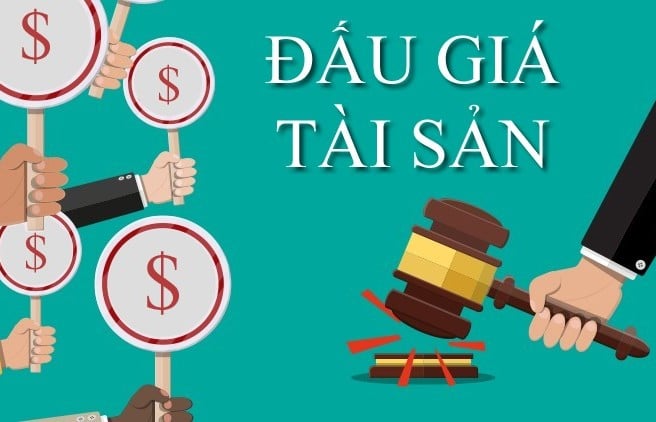






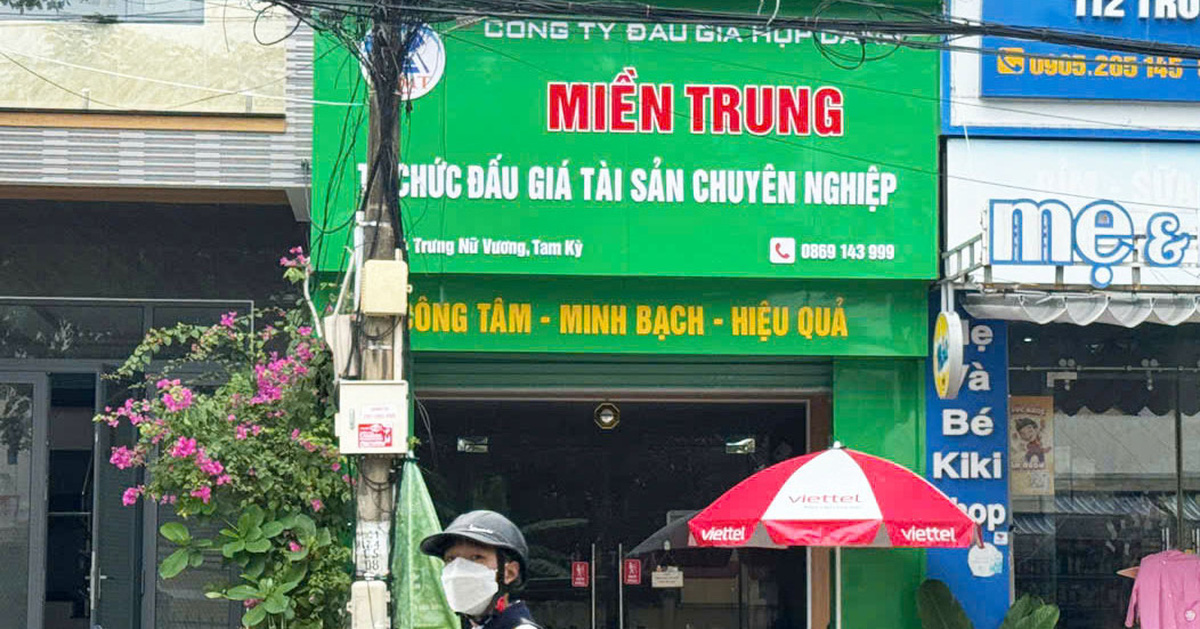

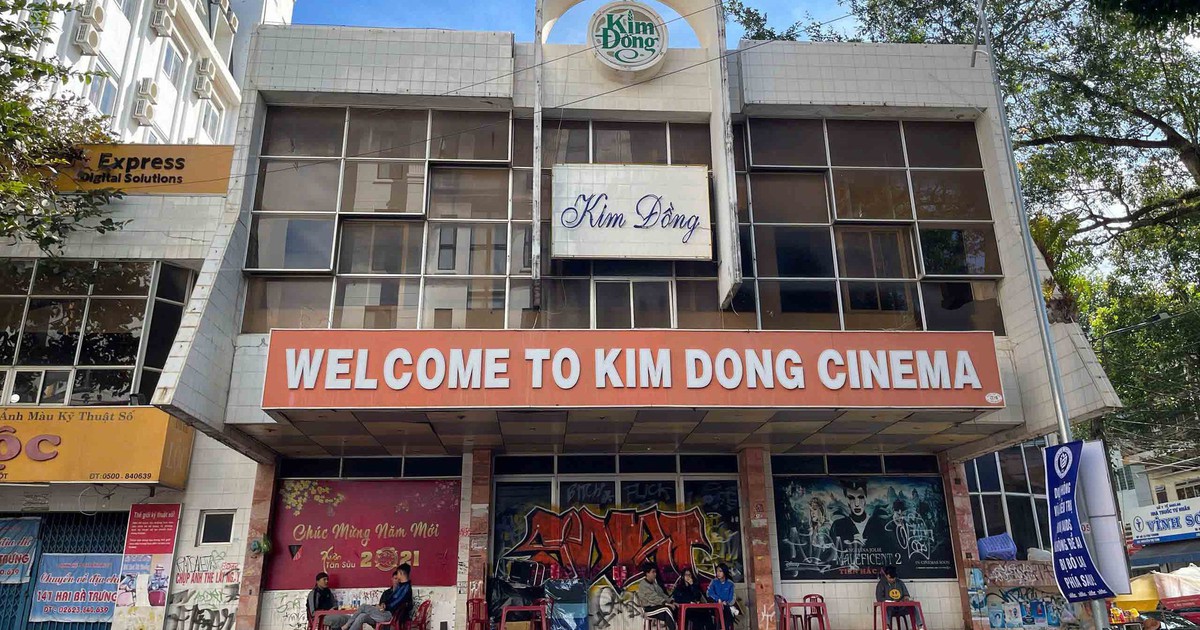
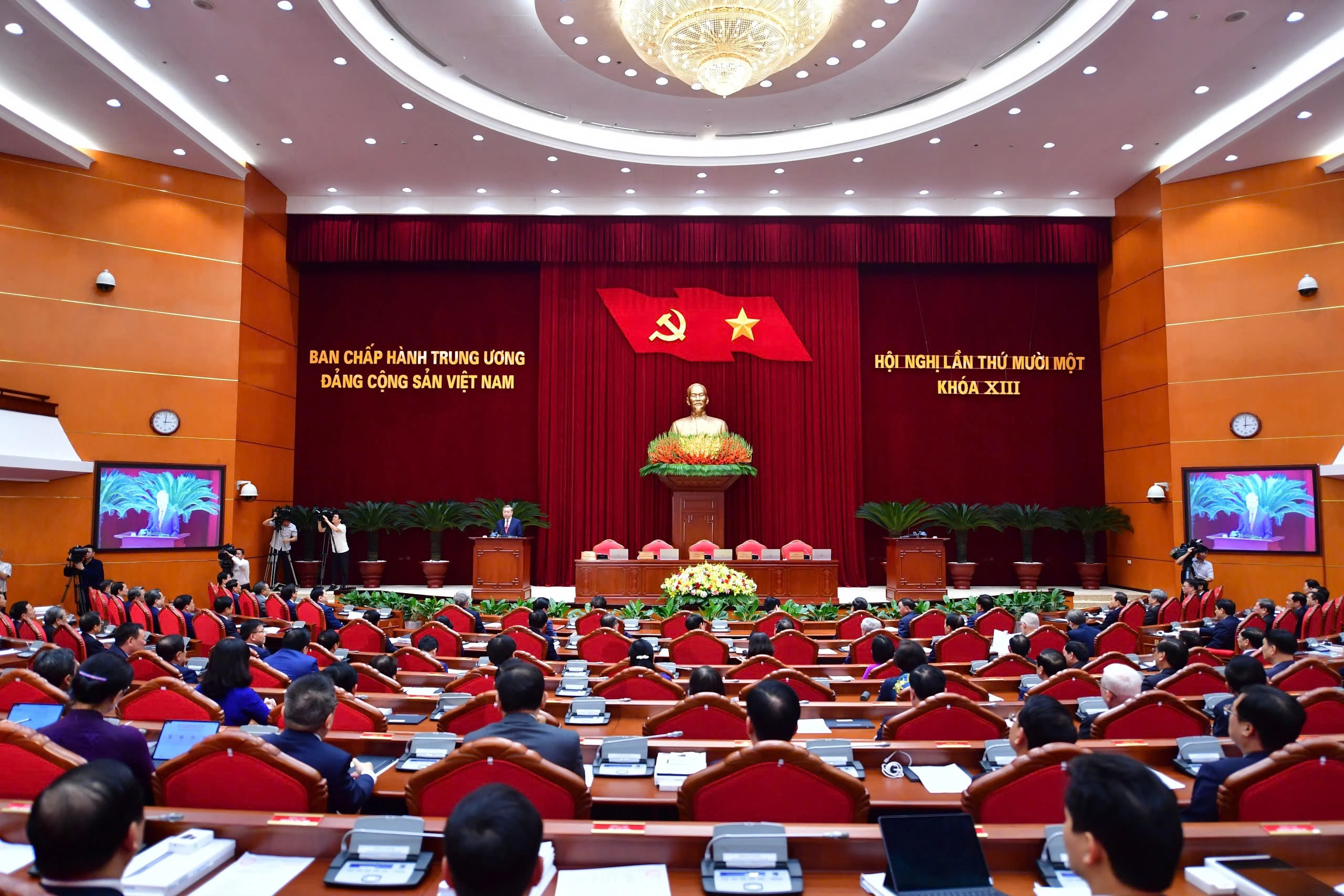



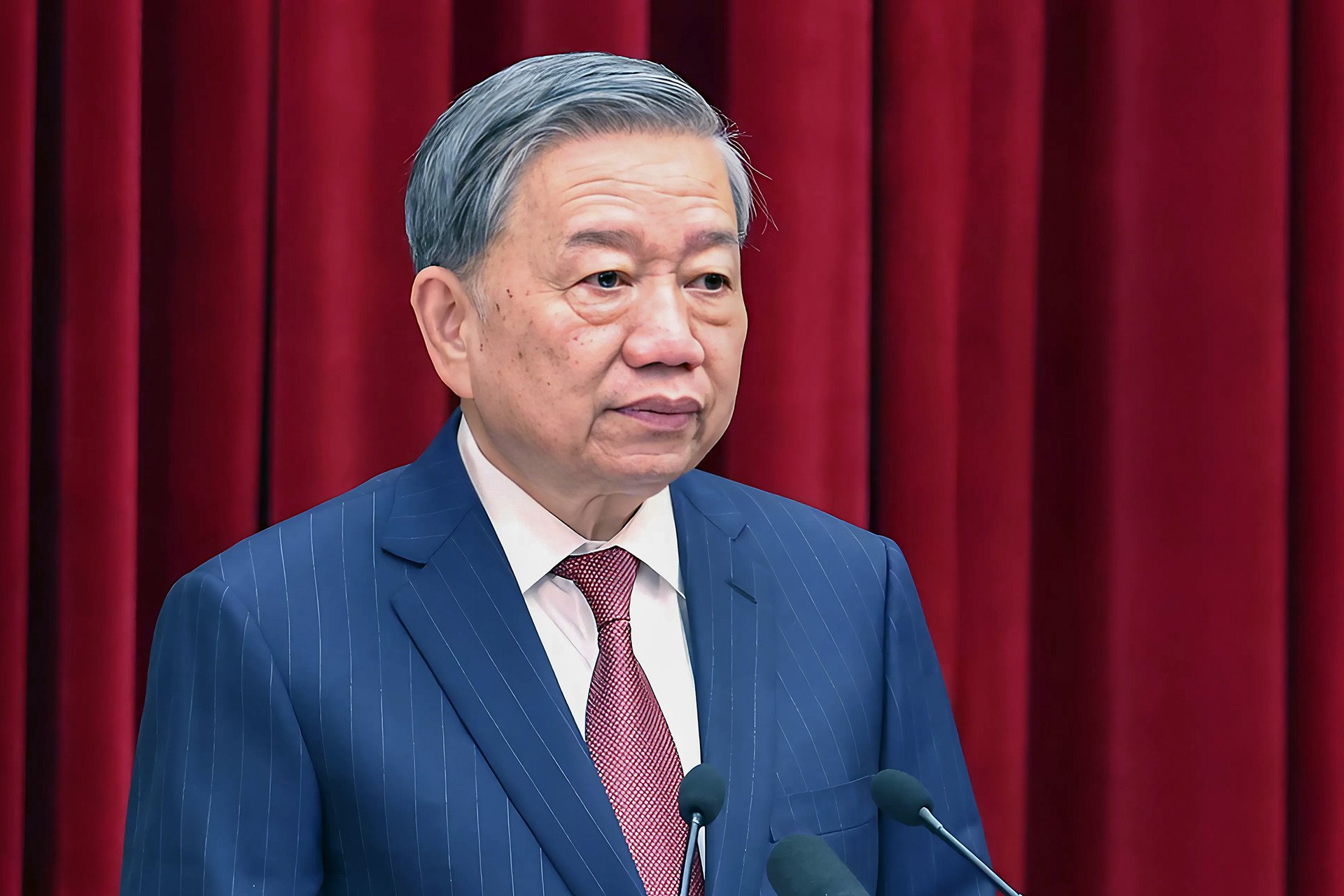







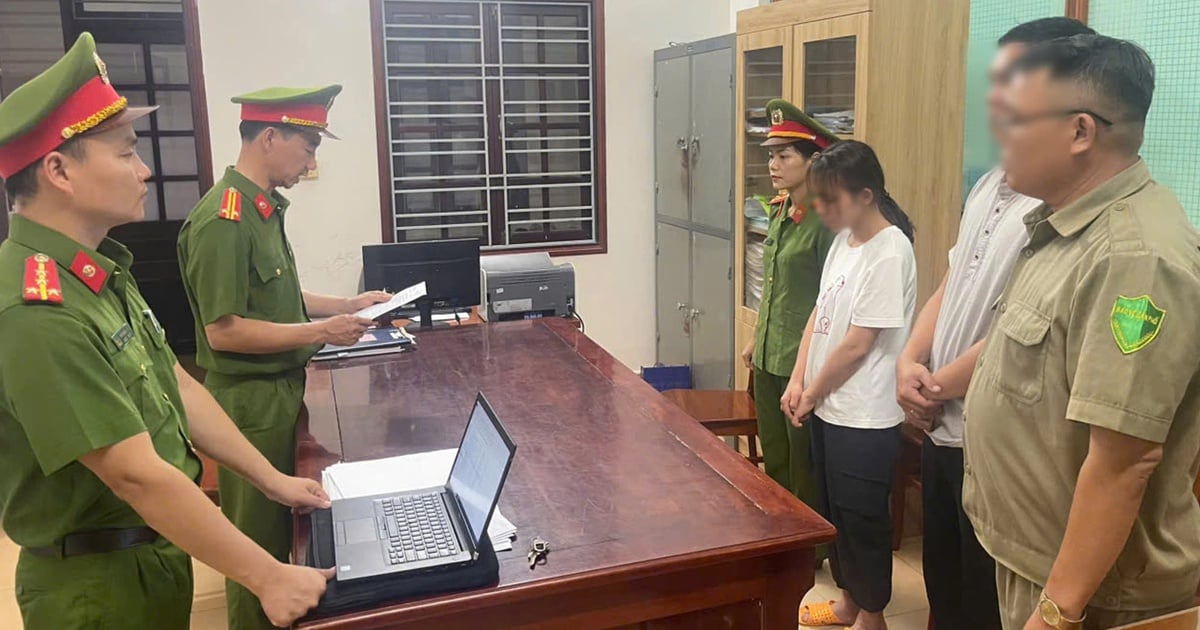



![[Photo] Overcoming all difficulties, speeding up construction progress of Hoa Binh Hydropower Plant Expansion Project](https://vstatic.vietnam.vn/vietnam/resource/IMAGE/2025/4/12/bff04b551e98484c84d74c8faa3526e0)




























































Comment (0)